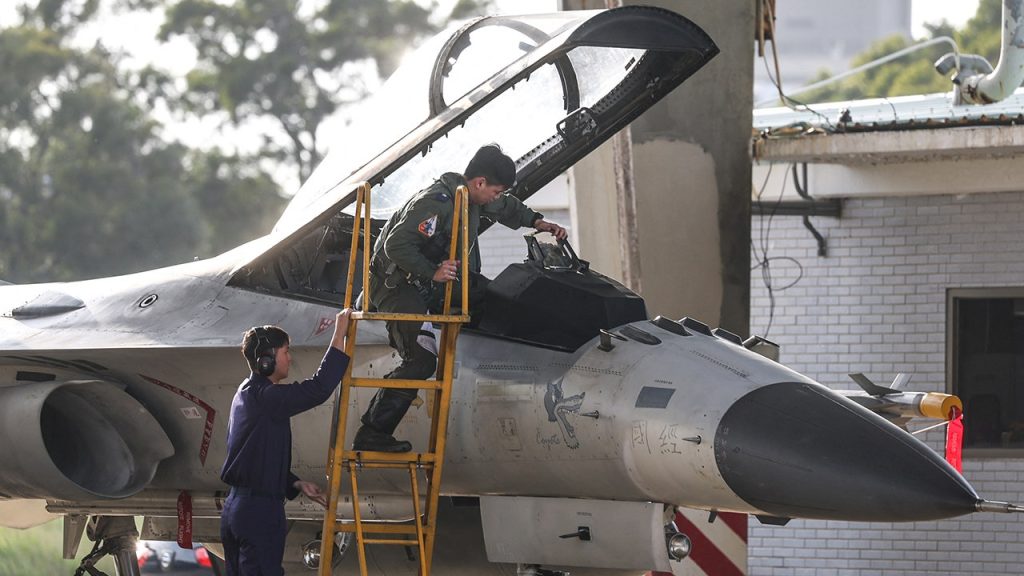The tragic death of a Taiwanese Air Force master sergeant, who was reportedly sucked into the engine of an Indigenous Defense Fighter (IDF) jet during a pre-shutdown inspection, has sent shockwaves through the Taiwanese military and prompted an urgent investigation. The incident, which occurred at Ching Chuan Kang Air Base, involved a seasoned officer with approximately 17 years of service. While the exact circumstances leading to the fatality remain unclear, the Air Force has confirmed the formation of a task force, working in conjunction with prosecutors, to determine the cause of the accident and prevent future occurrences. Initial reports suggest that the officer was “inhaled” by the engine for reasons yet to be determined, a scenario considered highly improbable given the IDF’s engine design and standard operating procedures.
The Taiwanese Air Force has expressed profound sorrow over the loss and pledged full support to the grieving family in navigating the aftermath of this devastating event. Beyond immediate support for the family, the Air Force has committed to a comprehensive review of operational protocols and safety measures. This review aims to identify any potential deficiencies and implement necessary improvements to ensure the safety of personnel working with aircraft. The investigation will be crucial in clarifying the events leading up to the tragedy and determining whether human error, mechanical malfunction, or a combination of factors contributed to the fatality.
The incident has raised questions regarding the circumstances surrounding the pre-shutdown inspection. Typically, after landing, an aircraft’s engine speed is gradually reduced to a slow rotation and should be completely stopped by the time wheel chocks are deployed. A source familiar with the IDF emphasized the extremely low probability of such an accident, noting the small intake opening of the engine. This makes the incident all the more perplexing and underscores the need for a thorough and transparent investigation to determine how such a rare event could occur.
Security footage from cameras installed within the hangar is expected to provide critical evidence in reconstructing the sequence of events. The footage should shed light on the actions of the ground crew, the status of the aircraft’s engine, and any other factors that might have contributed to the tragic outcome. The investigation will likely focus on analyzing the footage to determine whether established procedures were followed correctly and whether any unforeseen circumstances arose during the inspection.
The incident has drawn attention to the safety protocols surrounding aircraft maintenance and inspection. While the IDF has a relatively strong safety record, this tragic event highlights the inherent risks involved in working with complex machinery. The Air Force’s commitment to a comprehensive review will likely involve scrutinizing existing safety procedures, training programs, and communication protocols to ensure that they are adequate and effectively implemented. The findings of the investigation will be instrumental in informing future safety measures and reducing the risk of similar accidents.
The loss of the master sergeant serves as a stark reminder of the dangers faced by military personnel, even during seemingly routine operations. The incident underscores the importance of meticulous adherence to safety protocols, rigorous training, and continuous improvement of safety measures. The Taiwanese Air Force’s commitment to a thorough investigation and subsequent implementation of corrective actions reflects a dedication to learning from this tragedy and ensuring the safety and well-being of its personnel. The results of the investigation will be anxiously awaited, both within the Taiwanese military and by the public, as they seek to understand the circumstances surrounding this devastating loss and to prevent such incidents from occurring again.

